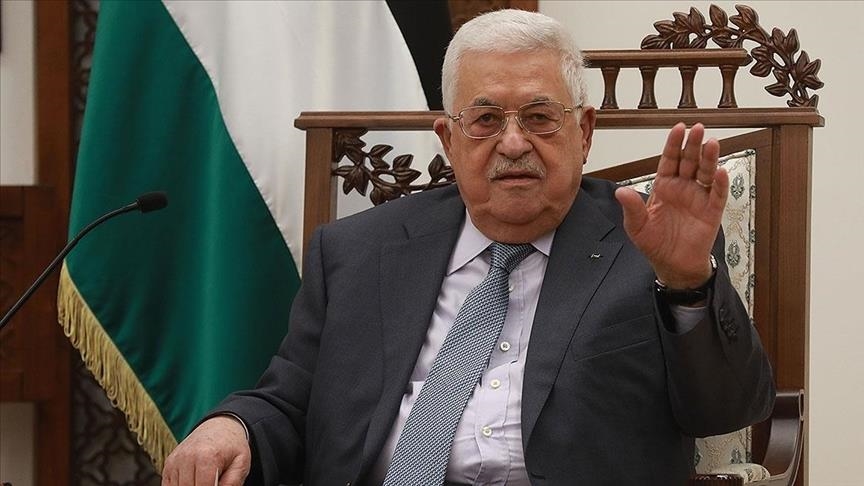Mahmoud Abbas begins 17th year as Palestinian president
Elected in 2005, Abbas presided over stepped up security coordination with Israel, curtailment of West Bank armed resistance

RAMALLAH, Palestine
Palestine's veteran President Mahmoud Abbas is starting his 17th year in office amid political difficulties and waning prospects for Palestinian reconciliation.
In January 2005, Abbas was elected as president of the Palestinian Authority with a 62.52% majority to succeed the late Yasser Arafat.
Abbas was born in 1935 in Safad, a city about 210 kilometers (130 miles) north of Jerusalem, 13 years before he and his family, along with hundreds of thousands of other Palestinians, were forcefully evicted from their homes and lands in a tragedy Palestinians refer to as the "Nakba," or Catastrophe.
As a result of the 1948 exodus, Abbas and his family went to Syria, where he began his political activities in the 1960s, contacting the nascent Fatah movement.
He assumed several political positions through the 1970s until he became the leader of the secret negotiations delegation in 1989 that established a peace process with Israel and coordinated the negotiations during the 1991 Madrid Conference.
"Abbas was a critical player in the Oslo Project, which gave the occupation recognition and gave it a place and authority over Palestine, and he continued this policy until today. This reflects on the high settlers' activities and the security coordination," said Palestinian political analyst Mustafa Sawaf.
Through his career as president, Abbas has worked to quell armed resistance against Israel in the West Bank and expressed willingness for a two-state solution with Israel despite the opposition of other factions, particularly those that engage in armed resistance, like Hamas.
In 2003, Abbas became prime minister for four months before he resigned amid disputes with then-President Arafat due to differing ideas on peace with Israel, as well as the second Palestinian Intifada.
Mustafa Barghouti, one of Abbas's opponents in the last presidential elections in 2005, emphasized during his campaign that the Oslo Process had collapsed and that the Palestinians had to adopt another route with Israel basedon the national unity, popular resistance and stop believing in a political solution through Oslo accords with Israel.
Barghouti believes Oslo was a political trap and that it involved major errors, while not containing a clear view of final resolution and not recognizing a Palestinian state.
"The Palestinian politicians must announce that they are relinquishing those accords and stop security coordination with Israel," he said.
During Abbas' presidency, negotiations with Israel reached an impasse, rendering Palestinians unable to improve their condition.
"The Palestinian strategy must be based on an approach of struggle as an alternative to the negotiations that have proved unsuccessful," added Barghouti.
Some political experts argue that Abbas's years as president also produced complications related to the democratic process, public freedoms, and armed resistance, as well as internal conflicts within Fatah that lead to factionalism in the party.
"Since the latest elections in 2006, Abbas consolidated the political divisions both with Hamas and inside Fatah, and any speech about national unity has been a fantasy," Sawaf told Anadolu Agency.
He said Abbas controls the West Bank with an aggressive security force against the opposition, with this suppression reaching a peak with security officers killing opposition activist Nizar Banat in June 2021.
"He’s a dictator, and he doesn't believe in democracy and exchange of power, he doesn't believe in elections, and is never serious about national unity," Sawaf emphasized.
The Palestinian elections were supposed to be held in the last year, but Abbas postponed them to an uncertain date.
Sawaf asserted that the only way to end the current political impasse would be via significant political strategies that include all Palestinian factions and leave "Abbas behind them if he decides to refuse to deal with their trials to find a solution."
"He refused to form a unified national leadership and a genuine political partnership. This is clear evidences that he is a political dictator who chooses individuality in power and decision making," he added.
Anadolu Agency website contains only a portion of the news stories offered to subscribers in the AA News Broadcasting System (HAS), and in summarized form. Please contact us for subscription options.







